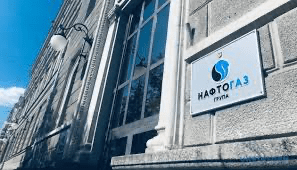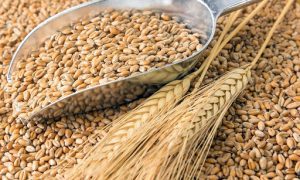
UNIQA and UNIQA Life insurers (Kyiv), members of the non-bank financial group UNIQA Ukraine, paid UAH 82.1 million of insurance claim fees in July 2020, which is 25% more than the amount of payments for June this year, according to a press release from UNIQA.
It is noted that under auto insurance contracts, the total amount of insurance payments in July amounted to UAH 37.4 million (46% of the total payments), of which payments for KASKO amounted to UAH 29.5 million, on OSAGO and DSAGO some UAH 7.9 million.
The total amount of payments under voluntary medical insurance contracts in July was UAH 32.7 million. The amount of payments for life insurance totaled UAH 2.8 million.
The largest sum for July was paid for the KASKO risk in the amount of UAH 1.1 million.
In July 2020, the UNIQA medical assistance processed 85,533 requests from insured clients. In July, technical assistance was contacted by 17,544 clients insured under KASKO, OSAGO, and property risks.
UNIQA Group (Austria) entered the Ukrainian market in 2006. Today its companies, namely UNIQA and UNIQA Life, headquartered in Kyiv, offer most types of risk and life insurance through a nationwide network.

The Ministry of Health of Ukraine intends to establish the production of vaccines in the country, Health Minister Maksym Stepanov said during a press briefing in Kyiv on Wednesday.
“Ukraine needs its own production of vaccines. This is one of the tasks for me from the president regarding the security of our country, especially with COVID-19,” he said.
“Last week, I met with major Ukrainian pharmaceutical manufacturers – Farmak, Lekhim, Biolik. Scientists from the National Academy of Sciences, the Institute of Microbiology were also present. We have a clear understanding of what will become a strategy for starting vaccine production in Ukraine,” he added.

NJSC Naftogaz Ukrainy and its member companies paid UAH 77.9 billion in taxes and fees to the state budget in January-July 2020 (including the balance of dividends for 2019), the company’s press service has reported.
According to the report, revenues from the group amounted to more than 17% of the total state budget revenues for the specified period.
As reported, NJSC Naftogaz Ukrainy and its member companies paid UAH 121.4 billion in taxes and dividends to the state budget in 2018.
Naftogaz Ukrainy unites the largest oil and gas companies in the country. It is a monopoly for storing natural gas in underground storage facilities, as well as for transporting oil by pipeline across the country.

Kyivstar and 1+1 media note a 35% increase in activity on the Kyivstar TV platform in the first half of 2020.
According to the press service of the mobile operator, while the growth of the audience interest in January-March was gradual, the activity sharply increased by 20% in April.
The demand gradually returned to the pre-quarantine level in June and July.
According to the data provided, the main preference of viewers is given to national TV channels of general interest. The three leaders are 1+1, Ukraine, and ICTV. Among the thematic TV channels, the most watched are movie channels (TV 1000 Action, VIP Comedy, ViP Megahit HD), for kids (PLUS, Nick Jr., Nicktoons), and educational channels (Viasat History, Viasat Explore, Discovery Channel).
The video library of the platform includes 10,000 films and series among which the leaders in terms of viewing are Ukrainian-made films Black Raven and Swingers 2. Besides, such foreign films as The Secret Life of Pets 2, How to Train Your Dragon 3, Fast & Furious Presents: Hobbs & Shaw, Faster, Suicide Squad became the most popular ones.
Among the TV shows and series, the leading content belongs to Ukrainian production: The World Inside Out, Daddy, Blind Marriage, Cat Trap.
“We are happy with the development of our common with 1+1 media product. If our colleagues are in charge of filling the platform with content, we provide our subscribers with the service of connection and configuration, unique advantages in the form of favorable tariffs, and promotional offers. Besides, during the quarantine period we opened access to all TV channels and VOD content to all users irrespective of the chosen tariff,” the press service quoted the head of Kyivstar fixed product and pricing unit, Serhiy Sukhoruk.
As reported, 1+1 media and Kyivstar launched the joint service Kyivstar TV with access for subscribers of any Internet providers in December 2019.

Ukraine since the beginning of the new 2020/2021 marketing year (MY, July-June) and as of August 12, 2020 had exported 3.995 million tonnes of grain and legumes, which is 1.1 million tonnes less (due to corn) than on this date in the past MY.
According to the information and analytical portal of the agro-industrial complex of Ukraine, to date, 2.26 million tonnes of wheat (131,000 tonnes more), 1.23 million tonnes of barley (133,000 tonnes less) and 499,000 tonnes of corn (1.1 million tonnes less) had been exported.
As of August 12 of this year, 24,200 tonnes of flour had been also exported.
As reported, Ukraine exported a record 57.2 million tonnes of grain, legumes and flour in the 2019/2020 MY, which is 13.5% more than in the previous MY.

Kazakhstan will start resuming passenger flights to and from a number of countries on August 17, the Kazakh Industry and Infrastructural Development Ministry said on Wednesday. “Starting on August 17, 2020, there will be phased resumption of international flights to the United Arab Emirates, the Republic of Belarus, Germany, the Netherlands, Egypt, Ukraine, and the Russian Federation,” the ministry said.
The decision was made on August 11 by the interagency commission for coronavirus response with due account of the epidemiological situation reflected by the World Health Organization (WHO)’s chart.
The ministry noted that Kazakhstan’s agreement with the aviation authorities of the aforesaid countries was “preliminary.”
“The aforesaid countries support the resumption of flights to and from Kazakhstan in compliance with sanitary and epidemiological requirements (thermometry, social distancing, masks, and PCR testing),” the ministry said.
‘Please note that flights to Russia will require permission from the Russian side,” it said.
The number of flights will be established on the basis of current intergovernmental agreements on air travel depending on the commercial load of aircraft on each of the routes.